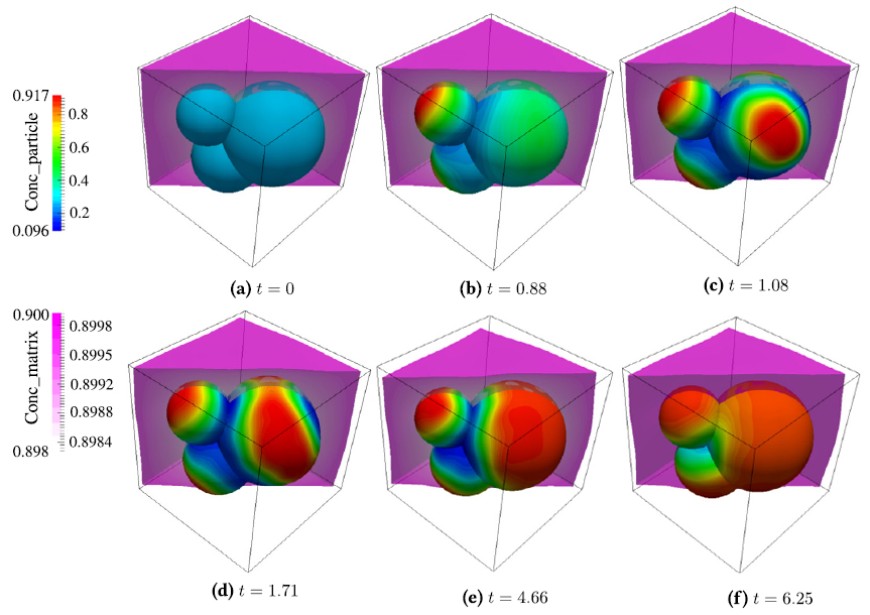Variational boundary conditions based on the Nitsche method for fitted and unfitted isogeometric discretizations of the mechanically coupled Cahn-Hilliard equation
New Publication in the “Journal of Computational Physics”
2017/04/07

Authors: Ying Zhao, Dominik Schillinger, and Bai-Xiang Xu
The primal variational formulation of the fourth-order Cahn–Hilliard equation requires C1-continuous finite element discretizations, e.g., in the context of isogeometric analysis. In this paper, we explore the variational imposition of essential boundary conditions that arise from the thermodynamic derivation of the Cahn–Hilliard equation in primal variables. Our formulation is based on the symmetric variant of Nitsche's method, does not introduce additional degrees of freedom and is shown to be variationally consistent. In contrast to strong enforcement, the new boundary condition formulation can be naturally applied to any mapped isogeometric parametrization of any polynomial degree. In addition, it preserves full accuracy, including higher-order rates of convergence, which we illustrate for boundary-fitted discretizations of several benchmark tests in one, two and three dimensions. Unfitted Cartesian B-spline meshes constitute an effective alternative to boundary-fitted isogeometric parametrizations for constructing C1-continuous discretizations, in particular for complex geometries. We combine our variational boundary condition formulation with unfitted Cartesian B-spline meshes and the finite cell method to simulate chemical phase segregation in a composite electrode. This example, involving coupling of chemical fields with mechanical stresses on complex domains and coupling of different materials across complex interfaces, demonstrates the flexibility of variational boundary conditions in the context of higher-order unfitted isogeometric discretizations.



